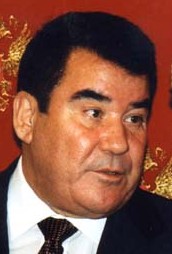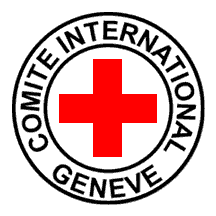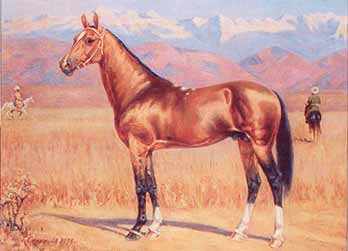Topic: Turkmenistan Political
By SAPARMURAT NIYAZOV, PRESIDENT OF TURKMENISTAN
 Throughout the history of human civilization, nations went through different periods of development, accompanied by the search for ways of nation building, self-realization, increased national self-consciousness and other types of transformations.
Throughout the history of human civilization, nations went through different periods of development, accompanied by the search for ways of nation building, self-realization, increased national self-consciousness and other types of transformations. Those processes constitute a single logical chain of history in which the desire for democracy, freedom, peace and justice is the moving force. No matter how long humanity was balancing on the edge of war and peace, it was always peace that came out victorious, which is a ground for historic optimism. The question is: What is the price paid by people for climbing up the ladder of history to reach their ideals of peace?
In that context, contemporary history is marked by radical changes in world politics caused by global interaction among nations and new challenges to peace and to humanity, whose importance is growing proportionally to its experience. Without a doubt, the experience of our young state could be of interest - from the beginning it proclaimed permanent neutrality as its policy.
Following the attainment of independence in 1991, Turkmen people, one of the most ancient Turkic peoples, whose 5,000-year history is marked by rich culture and periods of triumph and loss, entered a new era of true revival of independent statehood and the return to the international arena after centuries of obscurity. While considering ourselves part of an interconnected international community, we entered a new era with hope for peace and the belief in development and cooperation under guaranteed conditions of stability and security. The historic lessons of the twentieth century - learned from two world wars, a nuclear cold war confrontation, regional conflicts, natural and technological cataclysms, and mutual coexistence with other nations of the former Soviet Union - were the foundation of our optimistic hopes for progressive development of the world.
I have emphasized and continue to stress that the disintegration of the Soviet Union was historically destined and transpired in relative calm. As history has shown, it is impossible for more powerful nations to conquer and subdue small or large nations forever, notwithstanding their technological superiority. In accordance with the logic of progression, empires collapse, providing an opportunity for independent and free development to suppressed nations that have preserved their culture and language.
The Turkmen people, who attained independence in difficult times, managed to unite around the idea of national revival and demonstrated their ability to react effectively to the changes and challenges of the new epoch. Their peacefulness, tolerance, trust and ability to listen and be heard were the key in this process. It is those qualities that give us the grounds to speak of the revived democratic nature of our nation. Consistently and without political romanticism, we started to implement the program of our state building to search for optimal ways of participation in international relations. Each step was measured by national interests on one side and the demand to stabilize the situation in the region and strengthen international security on the other, since those tasks are difficult to separate.
In accordance with our adopted Constitution, the new institutes of state power are set up in a short time, taking into account the rich political and legal culture and mentality of the nation. The political system was elevated to a qualitatively new level, which helped to avoid social cataclysms and the split of the society into conflicting political groups. Most important, we managed to achieve social accord, inter-ethnic and inter-confessional harmony, and the people&'s trust of authorities. Also important was the fact that we prevented economic decline during the breaking-down of economic ties with the former Soviet state. The strategic landmarks and main parameters of Turkmenistan's development were marked by milestone documents approved by the highest organ of the state of the people's representation in the country, Halk Maslahaty (People's Council). At the threshold of the new century, key directions were defined in the National Program called "Strategy of Economic, Political and Cultural Development of Turkmenistan through 2020".
While reforming the economy, we were moving consistently, avoiding possible negative implications. Today's Turkmenistan is a thriving nation with many development parameters unprecedented in the world. The result of the implementation of the scientifically defined and socially oriented economic course is the level of per capita gross domestic product (GDP), which increases annually by more than 20 per cent. The high growth rate of the GDP and the stabilization of consumer prices stimulated the growth of the per capita income, which is now about $6,000.
Turkmenistan's dynamic economic development provided an opportunity for the creation of the whole system of social privileges and guarantees. Since the first years of independence, we have been providing free electricity, gas and water to our population, as well as the possibility of getting free education and medical services. The majority of citizens are exempt from paying most taxes. Payments for housing and the use of automobiles, air and railway transport are charged on a maximally preferential basis. Real guarantees have been created, resulting in personal, political, economic, social and other rights for citizens. It is reflected in laws and their application, the abolishment of the death penalty, the prohibition of illegal home search and of taking decisions by one person on the initiation of criminal cases, and in other documents and practical actions. These acts do not have analogies in the Asian continent.
Contemporary Turkmen society is developing on the basis of a resurrected national self-consciousness and moral and political values, which help consolidate the nation around the idea of new statehood and constructive development. An important factor is the mutual understanding between the power and the people, their mutual trust, which has guaranteed our mutual success. Such a relationship creates a favorable atmosphere for state building on the platform of democracy and the rule of law. Currently, our society is actively developing and shaping the consciousness of citizens based on the principles and values of neutrality, and is strengthening the ground for a new relationship in the state. However, it is necessary to take into account that the artificial acceleration of social development could break the fragile balance during the transition period and cause serious damage. People need to feel that the democratic structure of the state corresponds to its spirit. It is important that both the society and each individual are adequately prepared to face direct democratic challenges; otherwise the values of democracy could be downgraded.
"Contemporary Turkmen society is developing on the basis of resurrected national self-consciousness and moral and political values, which help consolidate the nation around the idea of new statehood and constructive development."
We came to the conclusion that we would be better understood if the foundation of our state is based on the type of social relations that were historically traditional to our people and served as a backbone of all state entities of the Turkmen throughout their history. The states and empires were collapsing, but the people's spirit was alive, and it is that which is supporting us on the road towards building a new life and strengthening the foundations of independent statehood. It is also that spirit which helps us achieve our objectives and dictates to us the code of honor and dignity of people the book Rukhnama, which serves as the code of ethics for the Turkmen and is directed to their hearts and souls. We are happy and proud that our Rukhnama stirs interest in many countries worldwide and serves as a guide for all humanistic ideas that constitute the essence of Turkmen mentality. The energy of spirit of our ancestors, the cultural and national traditions, and their experience of peaceful coexistence with other nations are reflected in our foreign policy.
From the memorable date of 12 December 1995, a new beginning in the history of the Turkmen state began. On that day, the United Nations General Assembly adopted the resolution "Permanent Neutrality of Turkmenistan" by which the Member States recognized the status of permanent neutrality of Turkmenistan and respect of its independence, sovereignty and territorial integrity. The resolution's adoption was recognition by the community of nations of the peaceful foreign policy of Turkmenistan and its constructive role in international affairs. Its permanent neutrality status is not only a recognized phenomenon in the system of international relations, but also a mechanism of factoring geopolitical interests, and this is very important, due to its geographical location and overall situation in the region and on the Asian continent.
Having achieved international recognition of its status, we first of all garnered favorable conditions for implementation of national interests. Our neutrality is not the shell by which we guarded ourselves from the discontent of the outside world, but, to the contrary, it is a strong position for active influencing the situation in the region and in the world in advancing effective international cooperation - an important factor for internal economic development.
"The role of countries and their leaders, as well as international organizations, is more important than ever before in strengthening and developing the positive trends to create a non-confrontational and non-violent model of the world - it is our responsibility to current and future generations. There is a need to build bridges of cooperation where possible and not create barriers among countries; this is a pressing demand of life."
The neutral Turkmenistan successfully develops bilateral and multilateral relations with other countries and international organizations. It has established diplomatic relations with 120 countries and is a member of forty international organizations. While dealing with economic, social, cultural and other tasks, we always felt and deeply appreciate the support and assistance of the United Nations, its programs, agencies and funds. Turkmenistan is open to constructive cooperation with the world organization in all areas, including the human dimension and I would like to particularly stress that this cooperation is a strategic priority for the foreign policy of Turkmenistan.
One of the main priorities of this cooperation is the maintenance of international peace and security and good neighborly relations with others, as well as conflict prevention and regulation of existing hotbeds, which are reflected in the spirit of the foreign policy of Turkmenistan. It was Ashgabat that initiated negotiations between the Afghan factions, an important contribution to the overall efforts of the international community aimed at stabilization of the region. In 1996 several rounds of inter-Tajik negotiations were conducted in our capital, which helped bring about a political solution of the civil conflict in Tajikistan.
After the events of 11 September 2001 in New York, Turkmenistan was one of the first to respond to the UN initiative to establish the global anti-terrorism coalition. As an active participant, we experienced first-hand horrible acts of this phenomenon. On 25 December 2002, a grave crime was committed in Ashgabat: it was a terrorist act, an assassination attempt on the head of state to take power through violent means and to change the constitutional foundations of the country. The investigation and open-court procedure proved that it was a premeditated criminal act funded and prepared outside the country, with a view to commit a coup d'etat. Although terrorism has many faces, its nature is always the same - it is based on extreme egoism brought to an extreme degree of evil, intolerance and cruelty. Terrorism does not know nationality or state affiliation, and is not related to any religion or culture; that is why the fight against it should be undertaken by the whole international community.
In a view of our deep interest in the restoration and well-being of and peace in Afghanistan. Turkmenistan continues to participate in its post-war rehabilitation. In cooperation with UN institutions and agencies, it created the main transport corridor for providing humanitarian assistance to the needy in Afghanistan. Our country is implementing large-scale projects aimed at providing the northern provinces with electricity at a low price and creating roads and communication infrastructure. The construction of the trans-Afghan pipeline, which is proceeding according to schedule with the participation of the Asian Bank for Development would be a major project not only for the region but for the world, aimed at the economic revival of Afghanistan and the creation of infrastructure and employment opportunities. This indeed proves the desire of Turkmenistan for good-neighborliness, stability and development in the region.
Following the principles of peacemaking, Turkmenistan actively participates in the initiatives of the UN Regional Disarmament Center for Asia and the Pacific. In September 1996, we signed the Non-Proliferation Treaty, and in 1997 supported the establishment of a nuclear-weapons-free zone in Central Asia and became a co-sponsor of the UN General Assembly resolution. The signing on 28 February 2004 of the Development Assistance Framework Program for 2005-2009 is a vivid example of the strategic partnership between Turkmenistan and the United Nations system. It is remarkable that the document, aimed at implementation of the global tasks outlined by the UN Millennium Development Goals, completely coincides with the national priorities and interests of Turkmenistan, as stipulated in its National Program.
We share the point of view that the UN system requires reforming in the twenty-first century, and we support the reform of the United Nations, with the objective of strengthening and broadening its role in the world. It is important to ensure representation of Member States in UN specialized institutions and in the staff of the UN system. The world organization could rely more on capacities and advantages that the Member States have. For example, Turkmenistan is ready to provide resources including office space, servicing infrastructure and living facilities to UN institutions for expansion of their representation in the region through the opening in our capital offices of UN agencies and programs. We are ready to provide maximum preferential treatment to UN institutions, which would allow the United Nations to save substantial financial resources that could be redirected to solving other problems faced by the Organization.
In October 2003, the first round of the Forum on Conflict Prevention and Sustainable Development for Central Asia was held under the auspices of the United Nations and the Organization for Security and Cooperation in Europe. In the context of strengthening the effectiveness of the instruments of preventive diplomacy, it is necessary to establish in Central Asia a United Nations Center for Preventive Diplomacy. Turkmenistan is ready to provide all assistance in its establishment in its capital. The setting-up of the Regional Consultative Council of the heads of the states of Central Asia could also strengthen the confidence in the region and be an effective mechanism of crisis and conflict prevention.
One of the key tasks of the contemporary world is the establishment of relations among members of the international community, based on principles of equality, partnership and fairness. This is relevant to taking decisions not only by the General Assembly but also by UN committees, commissions and other organs. It is necessary to emphasize that the attempts to apply pressure while taking decisions on the part of some countries and to abuse the authority of international organizations, including the United Nations, deeply contradicts the norms and principles of equal and respectful cooperation.
The multiplicity and complexity of tasks facing UN Member States are obvious. Their solution is possible not only through collective efforts but also by states fulfilling their individual responsibilities and roles. Turkmenistan follows this logic of political behavior in pursuing its objectives of strengthening peace and economic and cultural development. The United Nations can be completely confident that our country is always ready for constructive partnership. The role of countries and their leaders, as well as international organizations, is more important than ever before. Strengthening and developing positive trends to create a non-confrontational and non-violent world are our responsibility to current and future generations. There is a need to build bridges of cooperation where possible and not to create barriers among countries; this is a pressing demand of life.
Turkmenistan's consistent position is to strengthen the United Nations on the international arena as the highest forum for establishing a new, fair and humane world order. It supports the strengthening of the United Nations role, its peacemaking potential and its renewal in accordance with the changing realities of global development.
UN CHRONICLE, Issue 2, 2004
Posted by countryturkmenistan
at 1:59 PM
Updated: Monday, 11 July 2005 10:11 AM

 Ashgabat, 29 June 2005 (nCa) --- During a high level meeting Tuesday, Turkmenistan and the International Committee of the Red Cross (ICRC) agreed to deepen mutual cooperation.
Ashgabat, 29 June 2005 (nCa) --- During a high level meeting Tuesday, Turkmenistan and the International Committee of the Red Cross (ICRC) agreed to deepen mutual cooperation. The Akhal-Teke horse breed (pronounced Ah-cull Tek-y) is a breed from Turkmenistan, where they are the national emblem. It is named after the nomadic tribe that bred them. They are racehorses, noted for their endurance on long marches and are thought to be the predecessors of the Arabian and English thoroughbred breeds. These beautiful "golden-horses' are adapted to severe climate conditions and are thought to be one of the oldest surviving horse breeds. There are currently about 3,500 Akhal-Tekes in the world, mostly in Turkmenistan and Russia, although they are also seen in Germany and the United States.
The Akhal-Teke horse breed (pronounced Ah-cull Tek-y) is a breed from Turkmenistan, where they are the national emblem. It is named after the nomadic tribe that bred them. They are racehorses, noted for their endurance on long marches and are thought to be the predecessors of the Arabian and English thoroughbred breeds. These beautiful "golden-horses' are adapted to severe climate conditions and are thought to be one of the oldest surviving horse breeds. There are currently about 3,500 Akhal-Tekes in the world, mostly in Turkmenistan and Russia, although they are also seen in Germany and the United States.